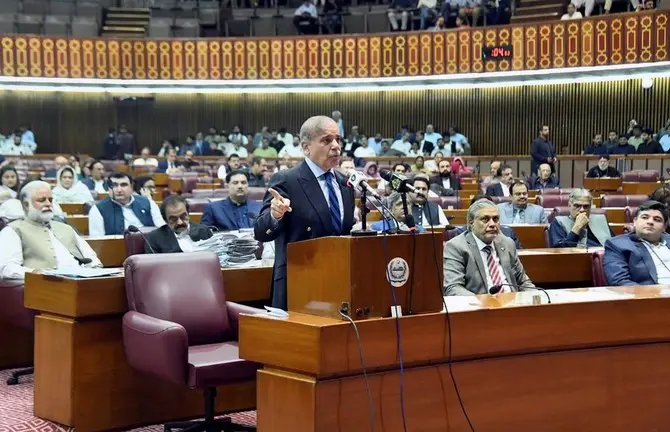Pakistan’s Parliament Dissolved, Setting the Stage for National Election Amidst Crisis
In a significant development, Pakistan’s Parliament has been dissolved, marking a crucial turning point in the country’s political landscape. This move sets the stage for a national election that comes at a time of heightened crisis and uncertainty. As students preparing for various government exams, including positions in teaching, policing, banking, railways, defense, and civil services like PCS to IAS, it’s essential to grasp the significance, understand the historical context, and extract key takeaways from this pivotal news.
Why this News is Important:
Political Turmoil and Dissolution: The dissolution of Pakistan’s Parliament comes amid political turmoil and disagreements within the government. This action has sparked debates about the country’s democratic processes and governance. As aspirants for government positions, it’s vital to comprehend the impact of such political events on the nation’s stability.
Pre-Election Dynamics and Challenges: The impending national election will take place against the backdrop of economic challenges, security concerns, and regional dynamics. Understanding the complexities and potential outcomes of this election is crucial for students preparing for roles in civil services and defense.
Citizen Engagement and Participation: The dissolution of Parliament calls attention to the role of citizen engagement and the importance of voting. As future administrators and policymakers, it’s essential to appreciate the significance of active participation in the democratic process.
Historical Context:
Pakistan has experienced periods of political upheaval and military interventions throughout its history. The dissolution of Parliament harkens back to previous instances when political transitions have shaped the country’s trajectory. The need for stable governance and effective leadership remains a persistent challenge for Pakistan.
Key Takeaways from “Pakistan’s Parliament Dissolved, Setting the Stage for National Election Amidst Crisis”:
| Serial Number | Key Takeaway |
|---|---|
| 1 | Dissolution of Parliament signals political instability. |
| 2 | National election amid crisis poses multifaceted challenges. |
| 3 | Understanding the historical context of political transitions. |
| 4 | Importance of citizen participation in the democratic process. |
| 5 | Impact on governance and decision-making during uncertainty. |
Important FAQs for Students from this News
Q1: Why was Pakistan’s Parliament dissolved?
A1: Pakistan’s Parliament was dissolved due to political turmoil and disagreements within the government, leading to the need for a national election.
Q2: How does the dissolution of Parliament impact the upcoming national election?
A2: The dissolution of Parliament sets the stage for the national election, which will take place amidst economic challenges, security concerns, and regional dynamics.
Q3: What historical context is relevant to this news story?
A3: Pakistan has a history of political upheaval and military interventions, and the dissolution of Parliament reflects a recurring challenge of maintaining stable governance.
Q4: What is the significance of citizen participation in the democratic process?
A4: Citizen participation through voting plays a crucial role in shaping the country’s leadership and governance during times of crisis.
Q5: How does the dissolution of Parliament impact future administrators and leaders?
A5: Aspiring administrators and leaders must understand the implications of political transitions and instability to effectively address challenges in public service.

